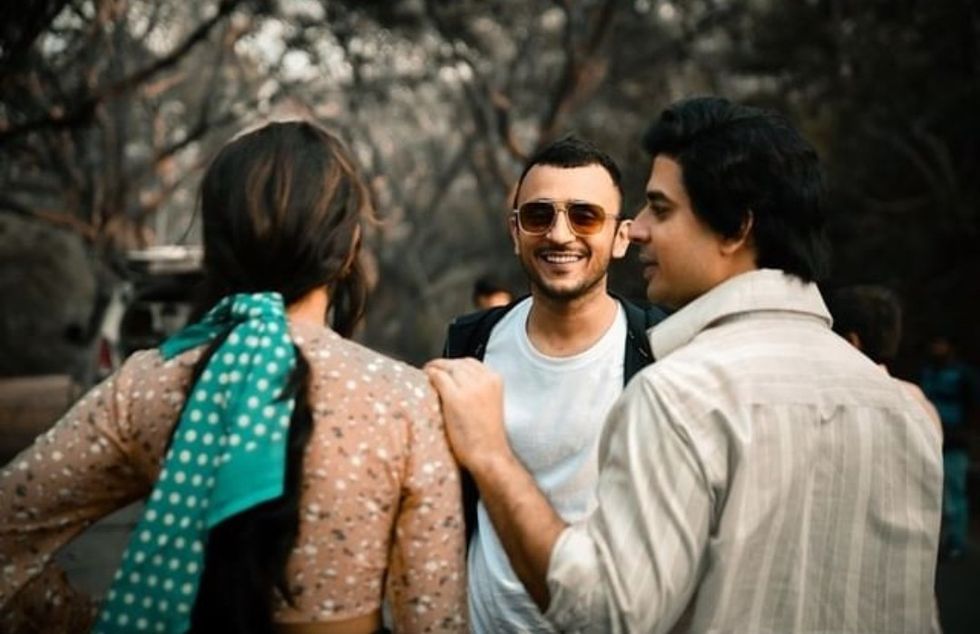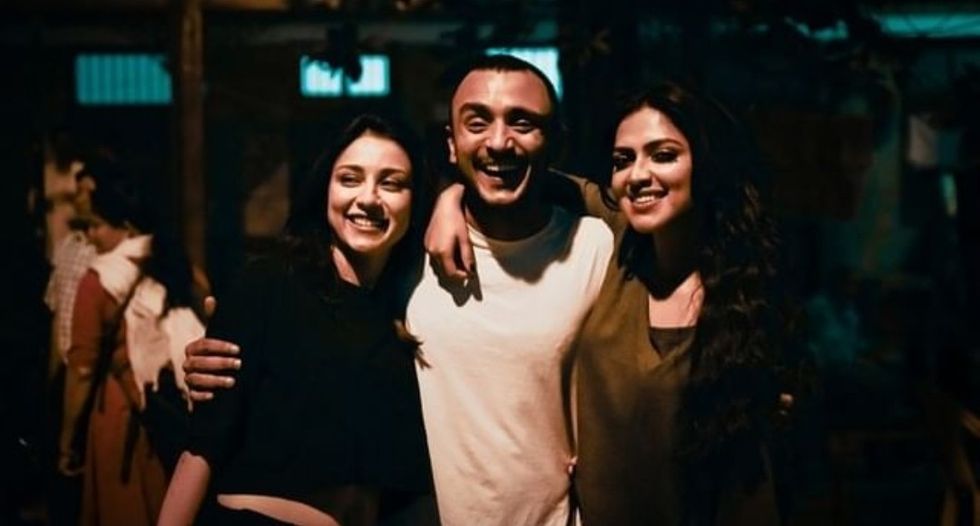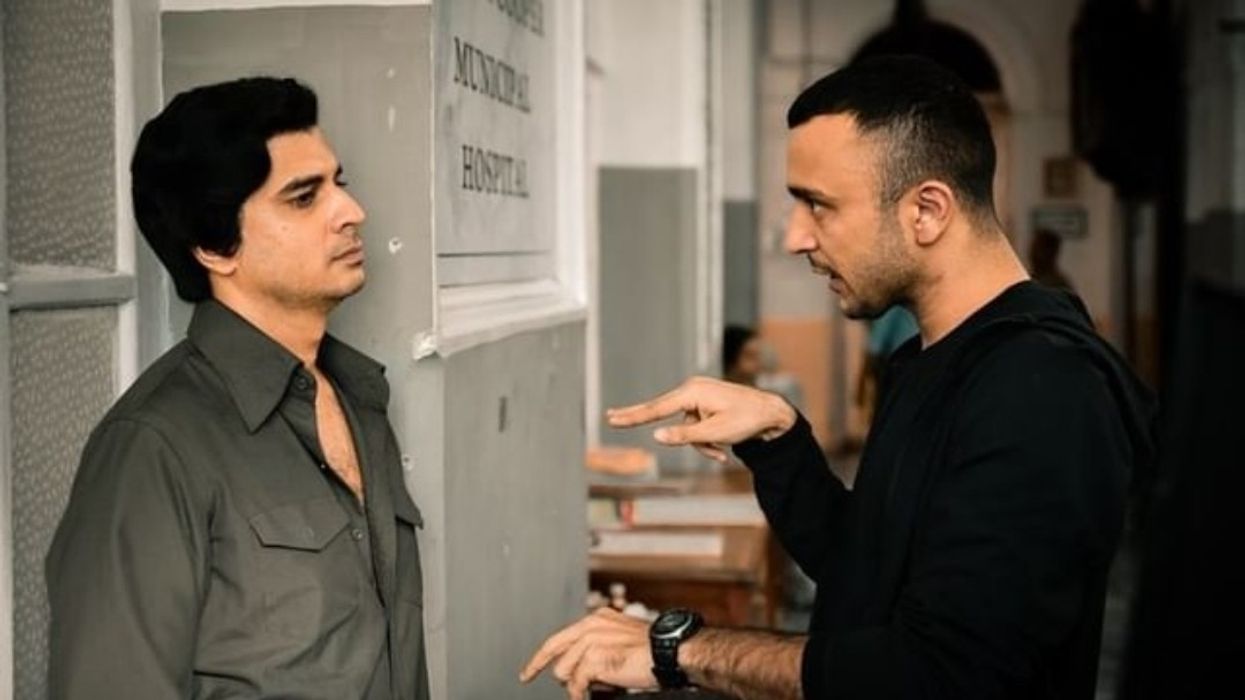Filmmaker Pushpdeep Bhardwaj is presently basking in the success of his Voot Select show Ranjish Hi Sahi, which recently opened to glowing reviews.
Starring Tahir Raj Bhasin, Amrita Puri, and Amala Paul in principal characters, the eight-episode show revolves around the theme of love, ambitions, and infidelity.
Recently, Eastern Eye caught up with Bhardwaj and tried to know more about Ranjish Hi Sahi, how he conceived the show, the experience of creating the era of Hindi cinema of the 70s, and much more. Read on…
I would like to begin by asking: what made you fall in love with cinema?
I was in 3rd standard when I watched a film for the first time. It was Mera Naam Joker (1970) and I watched it with my father. After watching the film, I told my father that I would also make films one day. It sounds very filmy, but it is true. That’s how I fell in love with cinema.
How did you get into the business? Is direction what you've always wanted to do?
The realisation that I wanted to be a filmmaker came only after I shifted to Mumbai. I was doing my college back then. Before that, I had done theatre for many years in Delhi. I always knew that I could write and tell a story.

What kind of response have you been receiving for your Voot Select show Ranjish Hi Sahi?
The response has been terrific so far. Everyone is raving about the show. I have not come across anyone who has not liked it and said, “You have directed a bad show. Why don’t you go back to Delhi? (Laughs) It is an emotionally charged show and people are hooked till the very end of it.
How did you come about conceiving the show?
An idea is what matters the most. When I was in Vishesh Films, Mahesh Bhatt saab gave me this idea. I was instantly hooked and decided that I would definitely work on it someday. Bhatt saab gave me a go-ahead and that’s how Ranjish Hi Sahi came into being.
How exciting was it to take a trip down memory lane by revisiting the era of Hindi cinema of the 70s?
It was very exciting. From direction to production, our entire crew was pretty young, so none of us had actually lived in that era. We all were new guns. So, for us, to visit that memory lane was extremely exciting.

The trailer reminded me of such films as Arth and Woh Lamhe. Is Ranjish Hi Sahi set in a similar world?
We all have seen so many versions of Devdas and liked them all. I won’t deny that the topic of infidelity has not been explored before in Hindi cinema, but the way I have treated my story and presented it to the audience is entirely different. There are multiple characters here. It is a very layered show. Every character has several nuances and an array of emotions that they go through. I had the liberty of telling my story in eight episodes, something that you cannot do with films. Unlike films, you can explore parallel tracks in web shows because films have a limited time period of 2 or 2:30 hours maximum. With web shows, you can tell your story in ten episodes also.
How was it to work with Tahir Raj Bhasin, Amrita Puri, and Amala Paul?
Amazing. They are exceptional talents. I am fortunate to have the perfect casting for my project, all credit goes to my casting director Vaibhav Vishant who is from Anti-casting. We took a lot of auditions, met a lot of actors. I am blessed to have worked with Tahir Raj Bhasin, Amrita Puri, and Amala Paul in Ranjish Hi Sahi.
Which is your favourite love triangle film from Bollywood?
See, I come from a generation where Shah Rukh Khan was everything. I loved his film Kuch Kuch Hota Hai (1998).
What is your message to those who have not watched the show yet?
It is an interesting show and we all have put our heart and soul into creating it. I request everyone to please take some time out and watch it. Also, do not forget to share your feedback with me.




